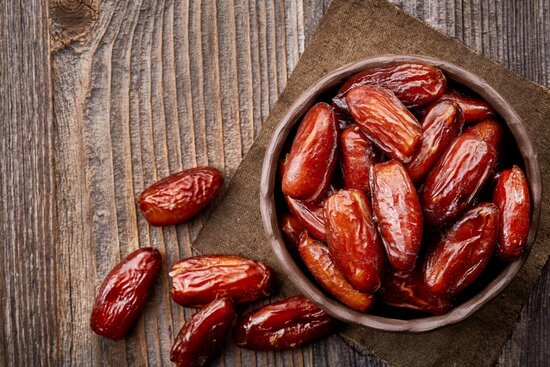Dates Nutrition: Understanding the Facts About Calories, Protein, Fat, Carbs, and Vitamins
If you are looking for a healthy snack that is both delicious and nutritious, then you might want to consider adding dates to your diet. Dates are a great source of essential vitamins and minerals, and they are also low in fat and calories. In this article, we will explore the nutritional value of dates and how they can benefit your health.
What Are Dates?

Dates are the fruit of the date palm tree, which is native to the Middle East but is now grown in many parts of the world, including the United States. Dates are sweet and chewy and have a caramel-like flavor. They can be eaten fresh or dried, and are often used in baking or added to smoothies and other drinks.
Nutritional Value of Dates
Dates are a nutrient-dense food that is rich in vitamins, minerals, and fiber. Here is a breakdown of the nutritional value of one 100-gram serving of dates:
- Calories: 277
- Protein: 1.8 grams
- Fat: 0.2 grams
- Carbohydrates: 75 grams
- Fiber: 7 grams
- Vitamin B6: 0.2 mg
- Iron: 1 mg
- Potassium: 696 mg
- Magnesium: 54 mg
As you can see, dates are high in carbohydrates, which makes them a great source of energy. They are also low in fat and have a low glycemic index, which means they won't cause a rapid spike in blood sugar levels.
Health Benefits of Dates
In addition to being a great source of nutrition, dates also offer a number of health benefits. Here are just a few:
Promotes Digestive Health
Dates are rich in fiber, which can help promote healthy digestion and prevent constipation. They can also help to regulate blood sugar levels, which can be beneficial for people with diabetes.
Boosts Brain Function
Dates are a good source of vitamin B6, which is essential for brain function. Vitamin B6 helps to produce neurotransmitters that regulate mood and reduce stress.
Supports Bone Health
Dates are a good source of calcium, which is essential for strong bones. They also contain magnesium, which helps to improve bone density and prevent osteoporosis.
Boosts Energy Levels
Dates are high in carbohydrates, which makes them a great source of energy. They are also a good source of potassium, which can help to reduce fatigue and improve muscle function.
How to Incorporate Dates Into Your Diet

There are many ways to incorporate dates into your diet. Here are a few ideas:
Eat them as a snack: Dates are delicious on their own and make a great snack.
Add them to smoothies: Dates can add sweetness and nutrition to your favorite smoothie recipe.
Use them in baking: Dates can be used in place of sugar in many baking recipes.
Make date paste: Date paste can be used as a natural sweetener in a variety of recipes.
Dates Good For You
Yes, dates are good for you! Dates are a nutrient-dense food that is rich in vitamins, minerals, and fiber. They are high in carbohydrates, which makes them a great source of energy. They are also low in fat and have a low glycemic index, which means they won't cause a rapid spike in blood sugar levels.
Additionally, dates offer a number of health benefits, including promoting digestive health, boosting brain function, supporting bone health, and boosting energy levels. Dates can be incorporated into your diet in a variety of ways, such as eating them as a snack, adding them to smoothies, using them in baking, or making date paste. So, if you are looking for a healthy and delicious snack, consider adding dates to your diet!
Dates are a delicious and nutritious fruit that offer a number of health benefits. They are rich in vitamins, minerals, and fiber, and can be incorporated into your diet in a variety of ways. Whether you eat them as a snack, add them to your smoothies, or use them in baking, dates are a great way to boost your health and well-being.